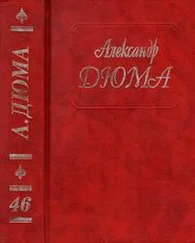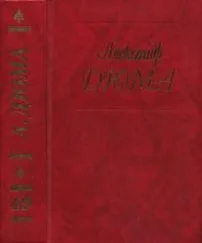"Gentlemen, gentlemen," said the king, whom nothing escaped, "one would almost think that you wore bracelets as the Sabines used to do; hand them round for a while for the inspection of the ladies, who seem to have, and with far greater right, an excuse for understanding such matters!"
These words appeared to Madame the commencement of a decision she expected. She gathered, besides, this happy belief from the glances of the queen–mother. The courtier who held them at the moment the king made this remark, amidst the general agitation, hastened to place the bracelets in the hands of the queen, Maria Theresa, who, knowing too well, poor woman, that they were not designed for her, hardly looked at them, and almost immediately passed them on to Madame. The latter, and even more minutely, Monsieur, gave the bracelets a long look of anxious and almost covetous desire. She then handed the jewels to those ladies who were near her, pronouncing this single word, but with an accent which was worth a long phrase, "Magnificent!"
The ladies who had received the bracelets from Madame's hands looked at them as long as they chose to examine them, and then made them circulate by passing them on towards the right. During this time the king was tranquilly conversing with De Guiche and Fouquet, rather passively letting them talk than himself listening. Accustomed to the set form of ordinary phrases, his ear, like that of all men who exercise an incontestable superiority over others, merely selected from the conversations held in various directions the indispensable word which requires reply. His attention, however, was now elsewhere, for it wandered as his eyes did.
Mademoiselle de Tonnay–Charente was the last of the ladies inscribed for tickets; and, as if she had ranked according to her name upon the list, she had only Montalais and La Valliere near her. When the bracelets reached these two latter, no one appeared to take any further notice of them. The humble hands which for a moment touched these jewels, deprived them, for the time, of their importance—a circumstance which did not, however, prevent Montalais from starting with joy, envy, and covetous desire, at the sight of the beautiful stones still more than at their magnificent workmanship. It is evident that if she were compelled to decide between the pecuniary value and the artistic beauty, Montalais would unhesitatingly have preferred diamonds to cameos, and her disinclination, therefore, to pass them on to her companion, La Valliere, was very great. La Valliere fixed a look almost of indifference upon the jewels.
"Oh, how beautiful, how magnificent these bracelets are!" exclaimed Montalais; "and yet you do not go into ecstasies about them, Louise! You are no true woman, I am sure."
"Yes, I am, indeed," replied the young girl, with an accent of the most charming melancholy; "but why desire that which can never, by any possibility, be ours?"
The king, his head bent forward, was listening to what Louise was saying. Hardly had the vibration of her voice reached his ear than he rose, radiant with delight, and passing across the whole assembly, from the place where he stood, to La Valliere, "You are mistaken, mademoiselle," he said, "you are a woman, and every woman has a right to wear jewels, which are a woman's appurtenance."
"Oh, sire!" said La Valliere, "your majesty will not absolutely believe in my modesty?"
"I believe you possess every virtue, mademoiselle; frankness as well as every other; I entreat you, therefore, to say frankly what you think of these bracelets?"
"That they are beautiful, sire, and cannot be offered to any other than a queen."
"I am delighted that such is your opinion, mademoiselle; the bracelets are yours, and the king begs your acceptance of them."
And as, with a movement almost resembling terror, La Valliere eagerly held out the casket to the king, the king gently pushed back her trembling hand.
A silence of astonishment, more profound than that of death, reigned in the assembly.
And yet, from the side where the queens were, no one had heard what he had said, nor understood what he had done. A charitable friend, however, took upon herself to spread the news; it was Tonnay–Charente, to whom Madame had made a sign to approach.
"Good heavens!" explained Tonnay–Charente, "how happy that La Valliere is! the king has just given her the bracelets."
Madame bit her lips to such a degree that the blood appeared upon the surface of the skin. The young queen looked first at La Valliere and then at Madame, and began to laugh. Anne of Austria rested her chin upon her beautiful white hand, and remained for a long time absorbed by a presentiment that disturbed her mind, and by a terrible pang which stung her heart. De Guiche, observing Madame turn pale, and guessing the cause of her change of color, abruptly quitted the assembly and disappeared. Malicorne was then able to approach Montalais very quietly, and under cover of the general din of conversation, said to her:
"Aure, your fortune and our future are standing at your elbow."
"Yes," was her reply, as she tenderly embraced La Valliere, whom, inwardly, she was tempted to strangle.












